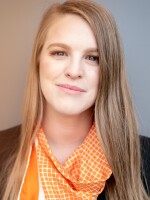I can remember the weeks before starting school at Skidmore College, furiously trying to finish Gregory Howard Williams' memoir, Life on the Color Line. The book had been assigned as our freshman reading assignment — part of the First-Year Experience at the liberal arts school in Saratoga Springs, N.Y.
Four years later, Williams spoke at our graduation.
Lots of colleges have these reading programs; some are just for freshmen, and for others, the entire campus or local community joins in. The idea is that books will stir discussion — and unite a class or campus around a topic. Some schools even have the author speak on campus, or weave the book's content into the year's curriculum.
Last year, these programs made the news — over controversy around defunding them.
But the programs are still prevalent around the country, for schools big and small. Last year, the National Association of Scholars looked at 341 colleges and universities and the 231 books they assigned.
The books are often selected by the campus — by professors, current students and the incoming class, or a combination. They tend to be contemporary reads: NAS's 2014 report found that more than half of the books assigned were published after 2010.
In recent years, schools have featured books like Rebecca Skloot's The Immortal Life of Henrietta Lacks, Malcom Gladwell's The Tipping Point and Khaled Hosseini's A Thousand Splendid Suns.
This year's selections cover a range of topics; many are nonfiction, and several focus on race, sex and other social issues.
From a community college in Kentucky to a liberal arts campus in Wisconsin, here are a few of the reading assignments for this year's freshmen.
Copyright 2024 NPR. To see more, visit https://www.npr.org.
What The College Kids Are Reading
The Emerald Mile

by Kevin Fedarko
Utah State University has a class for freshmen designed to prepare them for the Aggie college experience. This year, students in that class are required to read The Emerald Mile by Kevin Fedarko.
The nonfiction work follows the story of three men who ventured down the rapids of the Colorado River through the Grand Canyon.
Their 1983 journey in a small wooden boat was the fastest descent of the river ever recorded.
Fedarko will speak at the campus in Logan, Utah, at the end of August.
White Girls

by Hilton Als
Wentworth Institute of Technology in Boston chose the collection of essays titled White Girls by Hilton Als.
The essays about white girls throughout time provide a cultural analysis of art, music, literature and history. Als is a staff writer for The New Yorker.
"Our focus this year is on creating a conversation around national issues pertaining to gender, race and social class," said professor Gloria Monaghan, who coordinates the program.
Native Guard

by Natasha Trethewey
Students entering Lawrence University's freshman class will read Natasha Trethewey's Native Guard as the first work of Freshman Studies, the Wisconsin school's yearlong course for first-year students.
The 2007 book is a collection of Trethewey's Pulitzer Prize-winning poetry.
A Long Way Gone

by Ishmael Beah
Appalachian State University in Boone, N.C., selected A Long Way Gone: Memoirs of a Boy Soldier by Ishmael Beah. The autobiography follows Beah's life as a boy soldier fighting in a civil war in Sierra Leone in the 1990s.
Beah will deliver the school's convocation in September.
Einstein's Dreams

by Alan Lightman
Skidmore College in Saratoga Springs, N.Y., chose Einstein's Dreams by Alan Lightman. The fictional work is a collection of short stories based on Albert Einstein's dreams. The narratives deal with different concepts of time — and Einstein's thoughts around his theory of relativity. Lightman, a professor at MIT, plans to speak to Skidmore's freshman class in September.
A Deadly Wandering

by Matt Richtel
Incoming students at Boise State University in Idaho will receive copies of A Deadly Wandering during summer orientation.
The book tells the story of Utah college student Reggie Shaw, who killed two scientists while texting and driving. The narrative of the accident and its aftermath is paired with the science of distracted driving.
The author, Matt Richtel, will speak on campus in November.
A Companion for Owls

by Maurice Manning
Students at Owensboro Community and Technical College in Owensboro, Ky., will be reading A Companion for Owls: Being the Commonplace Book of D. Boone Long Hunter, Back Woodsman &c. by Kentucky poet Maurice Manning. The poetry collection tells the story of American pioneer Daniel Boone, one of the first to explore the land that is now the state of Kentucky.
The school often chooses regional writers in order to celebrate and tell Kentucky's history. The author is a Pulitzer Prize finalist and will be at the school in late October.
Purple Hibiscus

by Chimamanda Ngozi Adichie
The College of Wooster in Wooster, Ohio, has a first-year seminar for all freshmen. This summer, they'll be reading Purple Hibiscus by Chimamanda Ngozi Adichie.
The novel, set in the mid 1990s, tells the story of a teenage girl growing up in Nigeria.
The book is tied to a broader lecture series offering global perspectives on Africa and the African diaspora.



